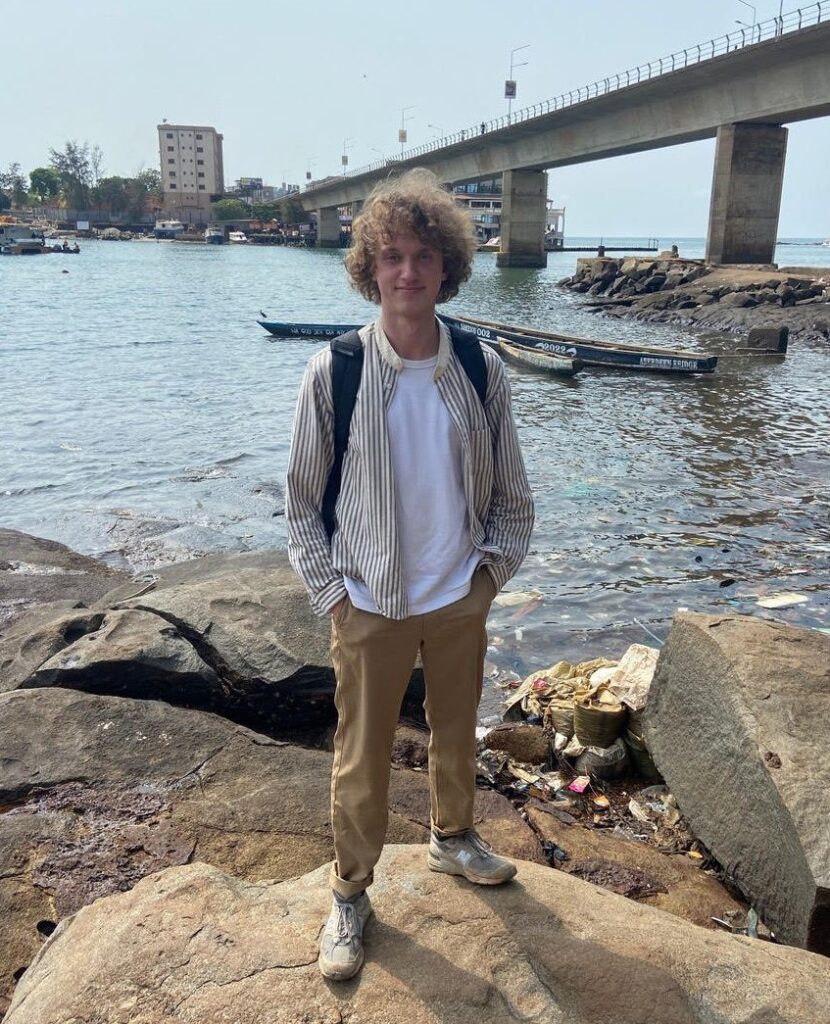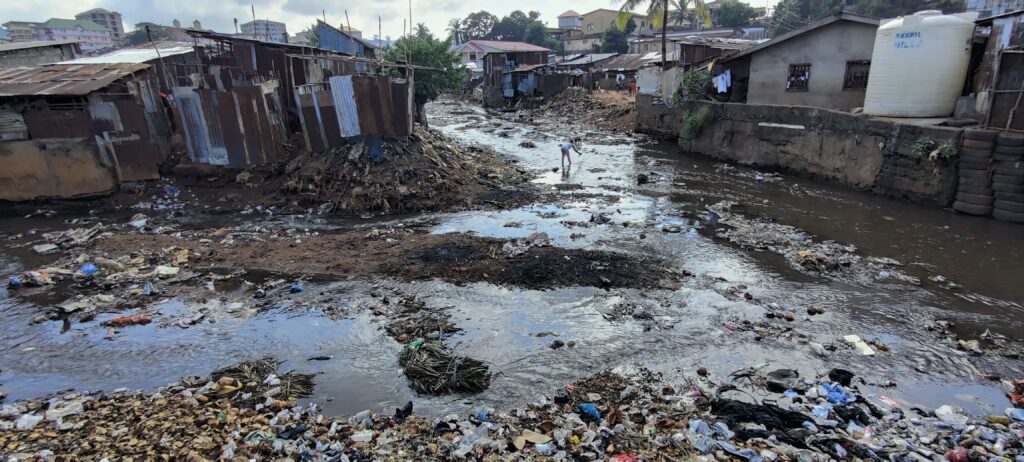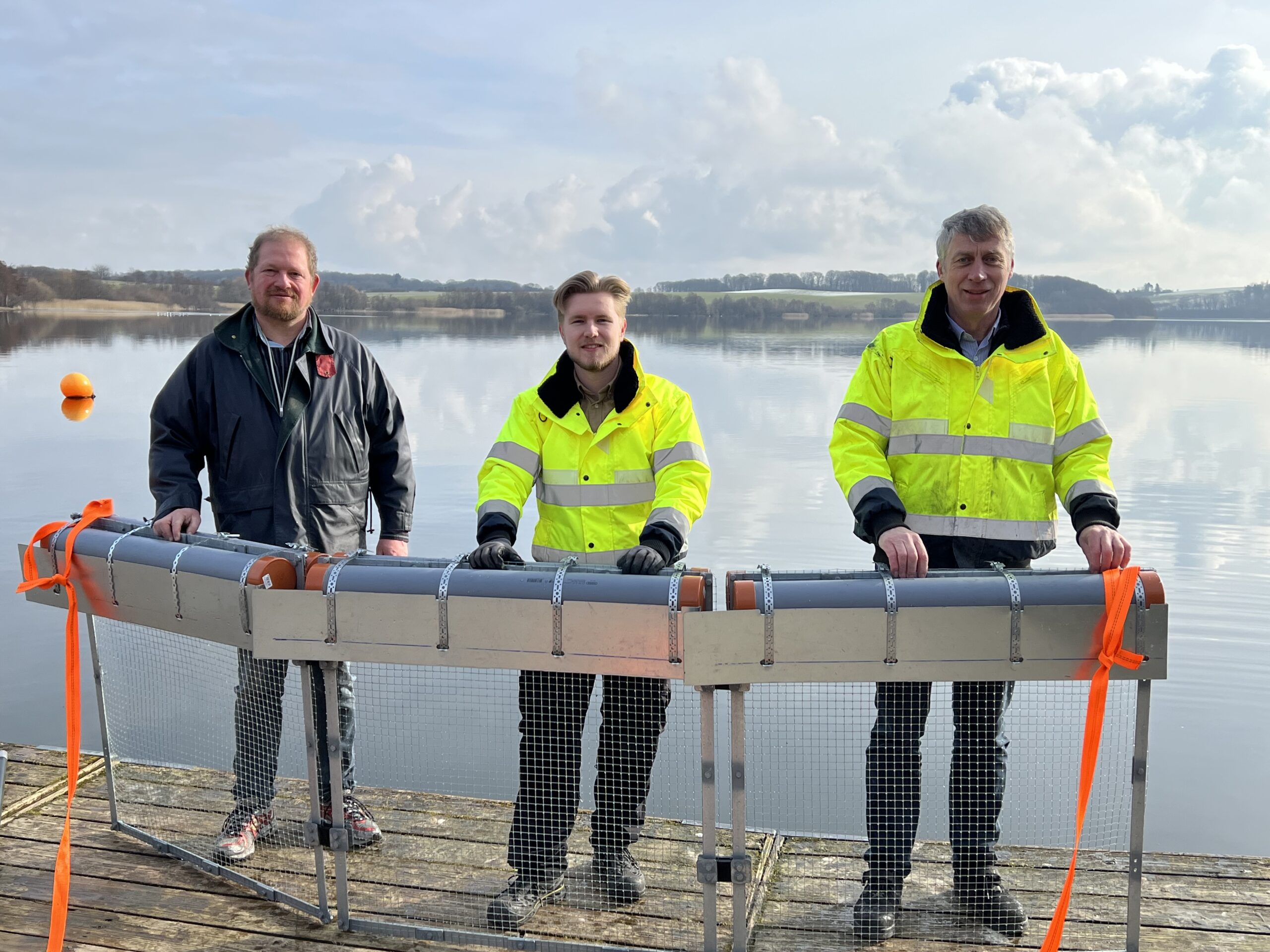The work on building a barrier to prevent plastic from flowing into the Atlantic Ocean from the capital of Sierra Leone, Freetown, is progressing. The project is being carried out in collaboration with Engineers Without Borders, DIS – CREADIS Engineering Solutions & Consulting, and our local partners. Ocean Plastic Forum has secured partial funding for the barrier, while DIS contributes the remaining funding.
Development of the barrier
Engineers Without Borders has hired two engineering interns, Nicolai Fürstnow and Peter Lindhøj Tuxen, who will play a crucial role in the project. Nicolai has just been sent to Freetown, where he will work closely with our skilled partners World Hope International and Skill Pool Sierra Leone over the next three months to install the barrier that can collect the plastic waste flowing from the city into the sea, as well as prepare for a waste management site where the plastic collected by the barrier, as well as the waste from the surrounding community, can be sorted.

The barrier has been developed by Peter in collaboration with DIS, and along with Mathias Starbæk Knudsen and Arne Palsbirk from DIS, Peter has conducted the first successful tests in Denmark at Silling Lake. After Easter, Peter and Arne will travel to Sierra Leone to test the three modules in Aberdeen Lagoon, where the final barrier is planned to be installed. The next step is to produce a larger-scale barrier with local partners.
The barrier has deliberately been designed as a simple structure to make it easy to replicate locally in Sierra Leone. The plastic is directed towards the shore, where it can be manually collected. One module is 1×1 meter and is attached with rubber mounts. The idea is that enough modules can be produced locally to contain the plastic in the corner of the lagoon where it flows out.
Our local partners
In collaboration with World Hope International, we have identified a potential site for the sorting facility where the collected waste will be sorted and processed for recycling. An important component of the project is to provide employment opportunities for the local community. IUG has been present in Sierra Leone for 13 years, where they have addressed the issue of waste management.
Additionally, Ocean Plastic Forum’s partner, Rostock University, has also joined the project as an advisory partner. The project is expected to benefit from Rostock University’s experience with their large household waste sorting facility in Kumasi, Ghana.
The plastic problem of Freetown
Waste management in Sierra Leone’s capital, Freetown, is significantly challenged by the increasing amounts of plastic, as the local waste infrastructure is severely lacking or non-existent. Sierra Leone produces 96 thousand tons of plastic waste annually, which accumulates on illegal waste sites, open dumps, or disappears into nature. Thus, 84 percent of plastic waste is not handled as it should be.
The problem is particularly flawed when it rains, and the waste subsequently accumulates in channels and riverbeds in Freetown. From there, the plastic flows unimpeded into the Atlantic Ocean.



